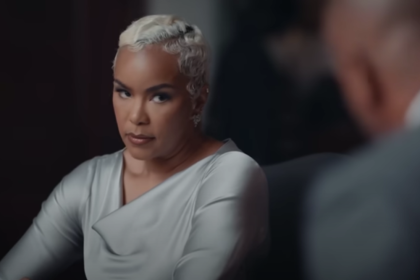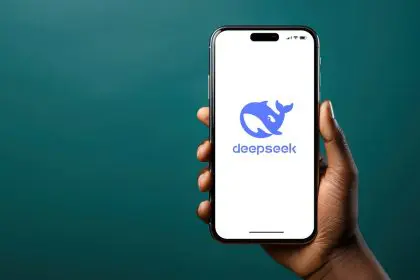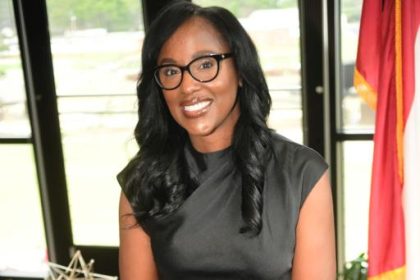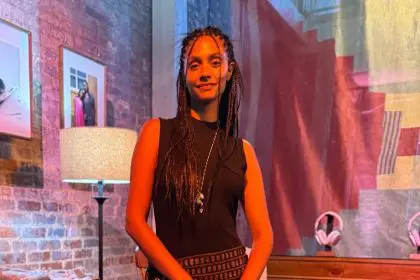With 20 years of industry experience, Shaquana Teasley is widely known for her expertise in import duty recovery with savings of over $30 million. Shaquana is highly sought after for her Trade Agreements and Supply Chain strategies expertise. She has proven to be an industry leader as a subject matter expert in International Trade Compliance, Policy, Global Logistics and Supply Chain.
Agate Solutions stands as a beacon for empowerment in the vast seas of International Trade with specialized consulting services, preparing businesses to increase their margins by capitalizing on international trade strategies to reduce duty, leverage trade agreements, defer import taxes with Foreign Trade Zones, navigate import-export complexities, maintain Department of Defense compliance, eliminate costly trade risk, optimize tariffs, and resolve the challenges of U.S. Customs and partnering government agencies.
Agate Trade Academy courses transform individuals, teams, and organizations by growing their skills to define their success. With meticulously curated courses, it serves as the linchpin for businesses, individuals, teams, and organizations aiming to broaden their skill sets and redefine their success narratives. The courses are precisely crafted and constructed to provide a comprehensive roadmap for aspirants and enterprises in domains like Import, Export, International Trade Compliance, Global Logistics, and Supply Chain.
Shaquana holds a Master of Science Degree from the University of New Haven and a Bachelor of Science from the City University of New York – Queens College. She is also a Certified Customs Specialist and a Certified Duty Drawback Specialist.
Shaquana is the VP of International Chapters for the Women in International Trade (OWIT) Executive Board, the Vice Chair of the National Black Chamber of Commerce International Committee, the Co- Chair of the National Alliance for Black Business International Committee, International Trade Compliance lead for the Atlanta Black Chamber – Global Opportunities Committee, on the Board of Directors for Troops 2 Logistics, leads the Atlanta Chapter of the International Compliance Professionals Association and the former Council Chair of the United States Pakistan Chamber of Commerce.
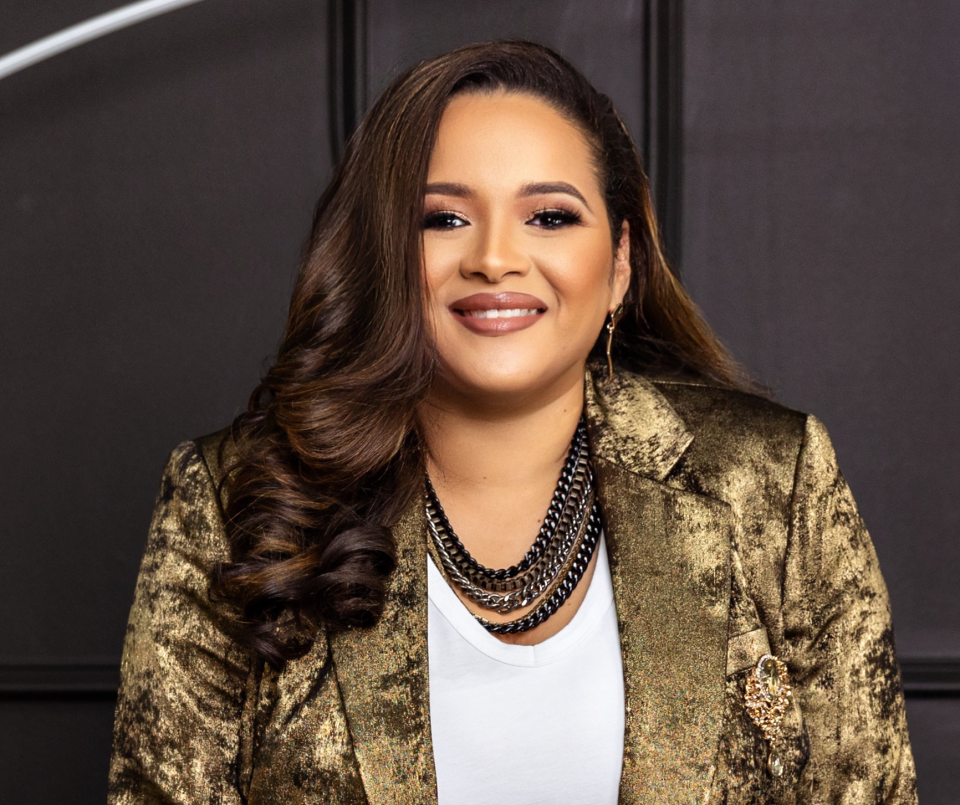
Munson Steed: Hey, ladies and gentlemen, this is Munson Steed and I am so proud to have you join me on this Sisters with Superpowers. There are sisters who take the moment and seize the day to go into the blue ocean strategies of where life and business are not always welcome, but also not anticipated. We all have something that came from afar. It comes from miles and miles away, and we don’t know how it got here, and there’s an industry, logistics and transportation that we all should be inside.
But there’s also a sister creating a safe space for those of us who want to know how to be in the business and to secure your goods should you need to bring them from around the world. I am so proud to bring my dear sister, Shaq Teasley. Tell me, give the audience who you are, name your company, and what you do for us in our community.
Shaquana Teasley: Hi, everyone! My name is Shaquana Teasley. Everyone calls me Shaq. I am the CEO and founder of Agate Solutions. We specialize in international trade, global logistics and supply chain. We own an accredited academy, so that we ensure our students have end-to-end solutions to be able to excel in this area. We also are a consulting agency, and as a consultant, I ensure that nation to nation has necessary tools that they need, to be able to transport goods compliantly, not just with U.S. customs, but within policy of international trade law.
As a consultant, I also work with small and medium sized businesses to ensure that they can actually increase their margins, and I know you’re probably wondering, like what? Increase your margins? How can you do that? Let me tell you how. In order to import and export your goods, there are so many complexities. Agate solutions bring a solid solution to that. We make sure that these small businesses and medium sized businesses, understand these complexities well enough to have the strategies that they need to reduce their their import duty spend.
Many of our companies that we work with have seen their duty spend go from 30% down to 9%, depending on the type of commodities that they’re transporting. So often people want, buy or seller relationships in regard to their international trade business transactions. What they don’t necessarily always realize is, a sustainable business is going to be based on one that increases their margins so they can scale and grow globally.
MS: Thanks for that for those individuals who don’t know why you created an academy. As a sister with superpowers, we define this as women who are creating safe space with benefits. Obviously, the benefit for us is to be able to future-proof our community, meaning to have jobs that are those that will be there in the future. Why start the community, institutional superpower sister, Shaq?
The purpose of the academy
ST: So, I started the academy first, because throughout these years that I’ve been in this industry, which is 20 plus years now, I found myself not really seeing many international trade institutions. The ones that did exist were not really geared toward small, medium-sized or minorities in any capacity. The cost of these institutions were extremely expensive, and no one helps you actually do anything with the education.
As a black woman in international trade, I find myself often being the only, and as the only, I wanted to be able to give that resource, that knowledge, and that skill to other minorities, particularly black women and other minorities in the industry, to ensure that they actually have the skills they need to compete and win globally as well. If we don’t have a succession plan, then we have no plan.
MS: When you think about the idea of customs and duties, a person’s cause, and they think it’s an alibaba moment. And all of a sudden they get there, and they get to call. You’ve got a problem. Why should individuals use a professional service like yours? And why should we begin to protect ourselves from having penalties and delays and actually being able to get our goods and services into this country?
ST: That’s a good question. Especially, in regard to once people run into problems. Agate Solutions actually, we wanna be your solution in the very beginning, when you are manufacturing your product, when you are sourcing your product. So that you have a solution and a strategy to help you win from the beginning. When you start working reactively, when you already are at the point of fines and penalties and seizures with customs, you’re red-flagged. And customs will red-flag you and remember who you are instead. That’s not what we wanna do.
We want to give you a solution for every commodity that you have before you import or export your goods, so we can actually help you determine your duty before you even import or export. We can help you qualify for trade agreements in partnering countries. We can help you now be in compliance with every government agency — FDA, EPA and all the other agencies that you have to clear before customs. So, the point of your question that really stands out to me is helping people once they’re in trouble. That’s really not our goal. You’re in trouble before you know it, and we want to be a solution before that trouble now interrupts your supply chain, where you cannot meet the manufacturing goals or the buyer goals to your end user. Because once that problem occurs, that puts your entire business transaction in jeopardy and the relationship.
MS: When we don’t think about the delays, the delays of logistics, not planning in the front side of being an importer, or even selecting the country. Many don’t know that there are benefits for using countries. Can you share how Agate Solutions actually helps to give people insights on what countries they should consider, when they think about really manufacturing and importing goods?
ST: Great question. So Agate Solutions takes the commodities that you’re interested in actually moving around the world. We help you identify how to reduce your duty and re-engineer or remanufacture your goods, to ensure that you’re paying the lowest possible duty. But in addition to that, there’s some countries that are less likely to be able to help you stay in compliance and reduce your margins or increase your margins. And then, there’s some countries that we would consider to be the countries that have preferential treatment with the U.S. government.
Those countries also have trade agreements with the U.S. government, and those are the countries that we actually enlist and partner with. To ensure that you can actually start doing business with those countries immediately. For example, the United States currently has an agreement with Africa. It is called AGOA, the African Growth Opportunity Act. Many countries are finding themselves in the middle of trade wars, or find themselves trying to do business with countries that are actually sanctioned or embargoed with the United States.
Therefore, they are immediately having major problems where they cannot import these goods, or they are seized by the government, or they might find themselves in an investigation. We want to make sure that you know what countries are the countries that are doing business with those countries or are in the area of preferential duty treatment, and have good standing with the United States or the governments in which you wanna import and export your goods.
Clearing misconceptions about Africa
MS: You said Africa. Give us an idea. You’ve been there before. Obviously, you travel the world. What should we be putting in place as a country or two into our consideration set when we think about Africa?
ST: That’s a great question. There’s some misconceptions I like to discuss first. There’s some misconceptions that every single country is in AGOA country, therefore they have preferential treatment in moving their goods. That’s a myth. It’s false. Some countries have never been part of AGOA, and some countries are on exemption lists, and they just have not been qualified as an AGOA country. For example, currently Zimbabwe has never been part of AGOA, Ever. So, to think that that’s a country that has preferential treatment is a misconception.
Can you still maximize on duty? Yes, if you have an international trade strategist. In addition to that, let’s think about Cameroon. Cameroon was removed from the AGOA list, so they therefore no longer on AGOA, therefore they no longer have preferential treatment. Now let’s talk about South Africa. South Africa is very different, which is the biggest user of AGOA to date. 20% of AGOA goods originate in South Africa. During my recent travels to South Africa. What I realized quickly is a lot of the exporters and manufacturers were not aware of how to get their products to even qualify.
Therefore, U.S. buyers that are interested in buying those goods from Africa, and they didn’t know how to really work with those particular manufacturers, because they didn’t know how to qualify for that trade agreement. So now, we have put our footprint right in the heartland of South Africa to make sure that we’re able to provide bilateral trade in those areas.
MS: When you think of products and services that you think we need to increase our consideration set coming from Africa, what would be some of those things that you would think would be beneficial to individuals thinking about being in business and wanting to actually import from Africa?
ST: The first thing that people think of when they think of Africa to import is agricultural goods. They say immediately, I want to bring in food great products, but they don’t understand the complexities of FDA to actually be approved to import those goods. In my opinion, I think that a high target area for a commodity would be textiles, apparel, and footwear. The reason I am saying that is because we already know that Africa has very unique textiles. They’re beautiful to the eye, but they’re also high-quality products. Those products are not raw materials.
Therefore, there’s more area to re-engineer those products to capitalize on reductions of duties. Let me give you an example. Here is the blazer that I currently have on. Customs has a definition for this blazer, as a consumer we may call it a blazer, but customs may call it a jacket. If a manufacturer doesn’t know how to properly determine the summary or description of these goods, immediately, they can be out of the loop in regard to being able to benefit from duty treatment.
Customs also has definitions as to how to define this garment. If it buttons right to left, it’s a women’s garment. If it buttons left to right, it’s a men’s garment. If it has a collar, it may determine a different change in that classification. If it has buttons, If it has a pocket, if the jacket goes below the waist, if it goes above the waist, all those different criteria can change the duty of a good. If it’s cotton, if it’s silk, any type of different material can change the duty impact. So, if you had an international trade strategist that can tell you how to engineer your products. You immediately beat the competition, not just in the U.S. but in your neighboring countries as well.
MS: Excellent. Textiles, interesting. Footwear probably never would have thought of it, but definitely makes sense. For those young ladies who really like hair, makeup, cosmetics, young entrepreneurs. Where in the world, including Africa, should they be considering bringing in this type of product?
ST: So, my first thing says Africa. And then I think, India as well. The reason I say Africa is because Africa has that trade agreement, and so it still gives a great deal of benefit, especially to small- and medium-sized businesses that are having a hard time competing with larger businesses that already have internal trade experts. So, I definitely think about Africa. I’ve bought and used many of the products traveling back and forth to the country. And I’ve been very impressed with the raw material and natural material that has less chemicals.
The hard part though, is also FDA. A lot of makeup and personal care products do have food and drugs inside of those products. In Africa, however, a lot of them may have more of a central characters, meaning things that are raw materials, like citrus, and things that are actually from the land, and I’ve been very impressed with that.
My second thought is also India. During my travels in India last year, I had the opportunity to try some of those products as well. And a lot of them reminded me of products that we see mostly like on TV, because they last longer. They didn’t smear. I never had a breakout. I’m highly allergic to everything. So I don’t touch perfumes and never really wear makeup. But I’m still using feminine care products, as well as personal care products that I’ve gotten from Africa in India, and I’ve never had a breakout. I’m highly impressed with the personal-care products in both regions.
MS: Thanks for that. For most of us who think about creating an academy, you created an academy to serve our community. Why have a career? And what have been the benefits of having a career in logistics and important export like yourself?
ST: So, I’ve had a great career. I’ve been very fortunate. I’ve had good mentors, and I’ve had people that have really supported me throughout my journey. Some of the benefits, I’ll say, when I was still in corporate America, and I was working different jobs. I never looked for a job ever, once I had this level of expertise, especially in the area where I can recover duty, which is highly skilled and highly specialized. We’ve recovered over $30 million in duty. That’s a very niche market.
Once I really learned how to make international trade, revenue generating, the sky was the limit. Recruiters will call me. I had my pick at any job I ever wanted, period. And that’s not the story of many people in their job careers. I was able to pick whatever job I had. I was in high demand. I could pick what I wanted, when I wanted, and I was able to get three college degrees for absolutely free, working for jobs in this area. I was working from home well before it became this popular phase during COVID. In addition to that, I was able to build international relationships and build them to the point where I had those relationships that were sustainable, when I was ready to be a CEO.
So, in regard to international trade, global logistics and supply chain, the opportunities are endless. As a CEO, as a business owner, and as someone that is looking for advancement in their career during their time at corporate America as well. It’s highly competitive globally but with the skill set that you have. I think that people have seen more revenue, having global careers over domestic careers, meaning overall throughout their entire journey.
MS: Give some insight, if you would, just a little bit more on how corporations, once a person has finished the academy that you have, how they will look at them, and what areas would they really be working in inside an organization? For example, a Home Depot, a Walmart.
ST: I actually worked at Home Depot before. I was in their supply chain international trade department. So, that’s a good example. So, our education and curriculum is very different from what you get from a traditional university, because we’re not just textbooks. We have real, live instructors that are doing this every day with 20 years’ experience, just like myself. Our students cannot graduate from our program until they actually import and export products.
They have to do customs documentation. They have to transmit these documents to customs in a testing environment. Therefore, they’re coming out job-ready immediately, and we’ve had great success in that area. So, if you took my courses, which we have several different courses in our curriculum. We’re teaching imports, exports. We teach documentation. We teach air freight forwarding, ocean freight forwarding. We teach the movement of chemicals. We teach how to take a warehouse into a foreign trade zone. We also teach you how to become licensed customs brokers.
So, by the time they’re done with us they have a certification, a micro certification, a micro accreditation, and their license through U.S. Customs. Some of them also become certified custom specialists. So, when they’re done, they’re just not textbook-ready. They’re job-ready. They can come right out and transmit entries to Customs. They come out of our program, and they are immediately ready to now do documentation to move goods around the world.
They have relationships with freight forwarders globally, through our networking program, mostly through our mentoring program. So, they come out, sky is the limit. We had high success rates in our students that are looking for jobs. We have equally had great success, and the students that we have, there are entrepreneurs as well.
MS: When you think about this, there are CEOs out there who are thinking about or want to import. This could be a team-building exercise, actually finding somebody inside your organization. And you’re really thinking about how to give them an additional skill set to bring to your team. Could attending your academy be one of those ideas for an organization that wants to grow in its import, export?
ST: Absolutely. There are recruiters that contact us asking for certain types of talent in the industry, and we’ve been able to support them. And you make a good point in regards to team-building exercises, because the larger freight forwarders are not just freight forwarders. They’re handling all areas of the supply chain. Therefore, they are full-service solutions. Agate’s mission is to ensure that we’re providing a full-service solution. So, when someone is interested in our student base or consulting agency, they’re getting someone that can support them in all areas of the supply chain. Not just one area.
MS: Thank you. So you’ve created this safe space to educate our community. If you’re given a speech per se at a Fisk, or NYU, or Howard, and you were gonna share with them your insight as a CEO, what would you challenge them to do? As you have been so successful in finding an area that most people never considered.
ST: I will challenge them to be their whole selves. People tell you to bring your whole self to work. But as an entrepreneur, I take that to another level, I get to be my whole self. I get to be my authentic self, unapologetically. When I was in corporate America, I was told what name I had to use. I was given the name Shay, and I was told I had to be Shay because Shaquana was urban, was the words I used. Oftentimes, I can’t wear my natural hair because they say I look too urban. I can’t wear braids in my hair.
I’m from New York, so I have a New York accent. I’ve been asked to speak slower. I’ve been asked to not, in my word, my letters with certain types of emphasis. I’ve been told not to wear sneakers and have been told to really pretty much to totally redesign myself, to be who and what this imagery is, of what I should be, instead of who I truly am. So, I totally rejected that in my entrepreneurship journey and I would tell people in regard to the challenges you’re gonna have. You’re gonna have to stand firm and be your authentic self and doing that unapologetically.
Because everyone can do what it is that I do. I’m not the only person that’s an international trader. I’m probably one of the only people that could do international trade, global logistics and supply chain. ‘Cause I’ve been able to work in those capacities throughout my 20 year career. But what makes me very different is, can’t nobody buy my spunk. Can’t nobody buy my pazazz. I am who I am. I give it to people straight. I give it to them raw. But I make sure they have the skills that they need to compete and win globally.
And I do that with the Shaq experience, therefore I’m not gonna minimize that. So, the advice I always give is to be your whole self, because that is what’s gonna draw the people to you that really see your value, and who wants to be where they’re not valued?
MS: Love that. The very proposition that you give for women who have to know in their hearts. They gotta take care of themselves and their families as entrepreneurs and CEOs. What insights would you give them about balancing both that and not losing their agency to know that they can still be a CEO?
ST: That’s a great question and I’m still working on that still myself, to be honest. I am a mom, and I’m a wife. I have a 14-year-old, and I have a 6-year-old, and I have a husband. And last year, I was in about maybe six to eight countries in 2023, and that’s a lot of travel for anyone less more, a mom. What I have done to balance this is, I have a good system, and when I say system, I mean team, and I mean that about my husband. We live in a place where we don’t have a whole lot of family, so we have to be on the same page as partners first, before everything else.
So, my advice for people that are still trying to figure that out. If you are us, if you are in a partnership, use your partnership in a space that makes sure that your family gets the whole experience they need. Regardless of what changes in your life. So, I also will tell people that it has been crucial for me to stay grounded and have a prayer life. If I didn’t have that, I don’t know if I will even be able to be the person you’re seeing today. I have to make sure that I’m grounded in that space, because if I’m not spiritually aligned and I can’t do anything in this business, and I can’t do anything for my family.
I will be honest though. I am still working on techniques to help me excel at that. I don’t know if there’s ever a perfect way, but for right now I will say the top three things for me is. God first, my husband and I being a partner and making sure that we are on the same page to see that our family has everything that they need, despite all my travel. And the last thing that I will say is, I do a lot of journaling. I write a lot, and I do that not just to relieve, release myself of some of the things I’m thinking about, but I use it as a way to go back and do things in retrospect, and reflect on where I was and what I want to do differently, because we’re all constantly growing. The more I reflect on myself, the better I am.
MS: Well, cool. Thank you so much for that, ladies and gentlemen, I bring to you Shaquana. Shaq is still my favorite. I don’t have any problem with that name. I think that you truly are a trailblazer. I think, ‘cause I always think of the major dunk that you’re doing in business. So, I’m clearly out of body. She’s killing on the court. I’ve seen you. If you’ve never seen her or had an experience with her, you should know how proud I am when I go to DC and I see her presenting. She just captivates the room, and she really has insight to help us all create a safe space with benefits in the area of import and export.
So, my sister with superpowers, thank you so much for coming on and hanging out with us here at rolling out Sisters with Superpowers.
ST: Thanks for having me.


